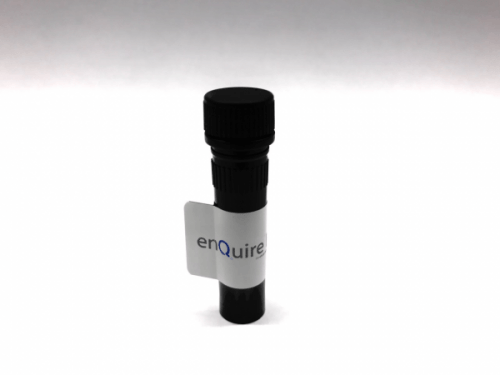P. aeruginosa Protease LasA Recombinant Protein Product Attributes
Product Type: Recombinant Protein
Recombinant Protease LasA based upon sequence from: P. aeruginosa
Host: QP7030 protein expressed in E. coli.
Tag: His-SUMO
Protein Construction: A DNA sequence encoding the Pseudomonas aeruginosa (strain ATCC 15692 / PAO1 / 1C / PRS 101 / LMG 12228) Protease LasA, was expressed in the hosts and tags indicated. Please select your host/tag option, above.
Recommended Applications: Immunogen, Protein Standard, Cell culture, or Other Cell Biology Applications.
Application Notes: Please contact us for application specific information for QP7030.
Bioactivity Data: Untested
Full Length? Full Length of Mature Protein
Expression Region: Ala237 – Leu418
Amino Acid Sequence: APPSNLMQLP WRQGYSWQPN GAHSNTGSGY PYSSFDASYD WPRWGSATYS VVAAHAGTVR VLSRCQVRVT HPSGWATNYY HMDQIQVSNG QQVSADTKLG VYAGNINTAL CEGGSSTGPH LHFSLLYNGA FVSLQGASFG PYRINVGTSN YDNDCRRYYF YNQSAGTTHC AFRPLYNPGL AL
Purity: Greater than 80% as determined by SDS-PAGE.
Reconstitution Instructions:
Concentration of P. aeruginosa Protease LasA Protein:
Endotoxin Levels: Not determined.
Buffer: Tris-based buffer, 50% glycerol
Storage Conditions: Store at -20C to -80C.
| Recombinant P. aeruginosa Protease LasA Protein General Information | |
|---|---|
| Alternate Names | |
| PA1871 | |
| Curated Database and Bioinformatic Data | |
| Gene Symbol | lasA |
| Entrez Gene ID | 878260 |
| RefSeq Protein Accession(s) | NP_250562.1 |
| RefSeq mRNA Accession(s) | NC_002516.2 |
| UniProt ID(s) | P14789 |
| KEGG Gene ID(s) | pae:PA1871 |
| General Description of Recombinant P. aeruginosa Protease LasA Protein. | |
| Involved in proteolysis and elastolysis (degradation of the host protein elastin). Has staphylolytic activity (degrades pentaglycine cross-links in cell wall peptidogylcan), preferring Gly-Gly-|-X substrates where X is Ala or Gly (PubMed:11179971). Enhances the elastolytic but not proteolytic activity of elastase (lasB) and elastolytic activity of other proteases (PubMed:2110137). Degradation of host elastin is likely to contribute to the pathogenicity of P.aeruginosa. While either His-317 or His-356 can abstract a proton in the hydrolysis reaction, the same residue performs both functions in a given catalytic cycle, with the other stabilizing the catalytic intermediate | |
Limitations and Performance Guarantee
This is a life science research product (for Research Use Only). This product is guaranteed to work for a period of two years when stored at -70C or colder, and one year when aliquoted and stored at -20C.




There are no reviews yet.